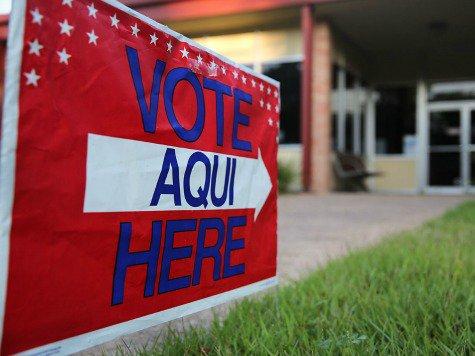The Independent Voter Project has filed a petition with the California Supreme Court to hear its lawsuit challenging the state’s semi-closed presidential primary, which the group asserts has caused widespread voter confusion and suppressed the votes of millions of Californians.
The lawsuit, which was originally filed in 2019 by IVP and 7 individual plaintiffs, cites 6 distinct violations to state and federal voting rights laws the state commits each presidential election cycle by using semi-closed primaries, including a state constitutional requirement that the publicly-funded and administered primaries be open.
RELATED: Lawsuit Says California is Not the Great Protector of Voting Rights It Claims to Be
Plaintiffs assert in their petition that there are no requirements by the state to join a party in order to be a “qualified registered voter.” Yet, voters who register No Party Preference are not given the same access to presidential primary elections.
“NPP voters can gain access to the presidential-primary process in only two ways,” they write to the high court.
“(1) they can waive or relinquish their NPP/unaffiliated status and register with the political party of their preferred candidate; or (2) they can request a ‘crossover’ ballot from a political party, but only if that party, by its own internal rules, allows NPP voters to participate:”
NPP voters are not only limited on their options, but they must affirmatively request a "crossover ballot" using that specific terminology. If they don’t, they will be given an NPP primary ballot with no presidential candidates listed, and poll workers are barred from making any suggestions or providing additional information to assist them in the voting process.
“Even where a crossover ballot is available to an NPP voter, the burdens imposed by the State on voters obtaining that crossover ballot creates confusion and imposes additional, onerous steps on NPP voters desiring to cast a vote in a primary election,” the plaintiffs write.
ALSO READ: The Impending Disaster of California's Confusing Presidential Primary
California’s attorney general has justified the rules of the presidential primary by repeatedly arguing that “California’s significant interest in preserving political parties, ensuring primary elections that accurately reflect the voting interest in preserving political parties, and guarding against party raiding justifies any minimal burden [against voters] that may exist.”
Plaintiffs never challenged the associational rights of political parties, despite how a now-published opinion from a Division 2 court of the Fourth Appellate District framed their case.
They embraced the rights of parties and asked the court to recognize that voters have the same rights, and that those rights should be equally protected regardless of a voter’s political affiliation.
IVP has offered a remedy that would protect party interests and the voting rights of 5.6 million NPP voters.
“Instead of giving No Party Preference voters a blank ballot for president, simply list all the candidates on their ballot,” said IVP Chairman Dan Howle.
“The state would tally and publish the no party preference results and let the parties decide whether or not to consider them in the selection of their nominees. Give voters a chance to express their preference.”
Though California policymakers have not moved on the proposed solution, it has garnered the support of a large coalition of nonpartisan reformers, including the National Association of Nonpartisan Reformers, Open Primaries, FairVote, Represent.us, Unite America, Alliance San Diego, California Forward, and California’s Common Sense Party. – among others.
FairVote, Open Primaries, and former Congressman and law professor Tom Campbell have all filed letters in support of IVP’s petition.
It is now up to the California Supreme Court to decide if they will hear the lawsuit and give plaintiffs a forum to make the case for equal voting rights in California.
